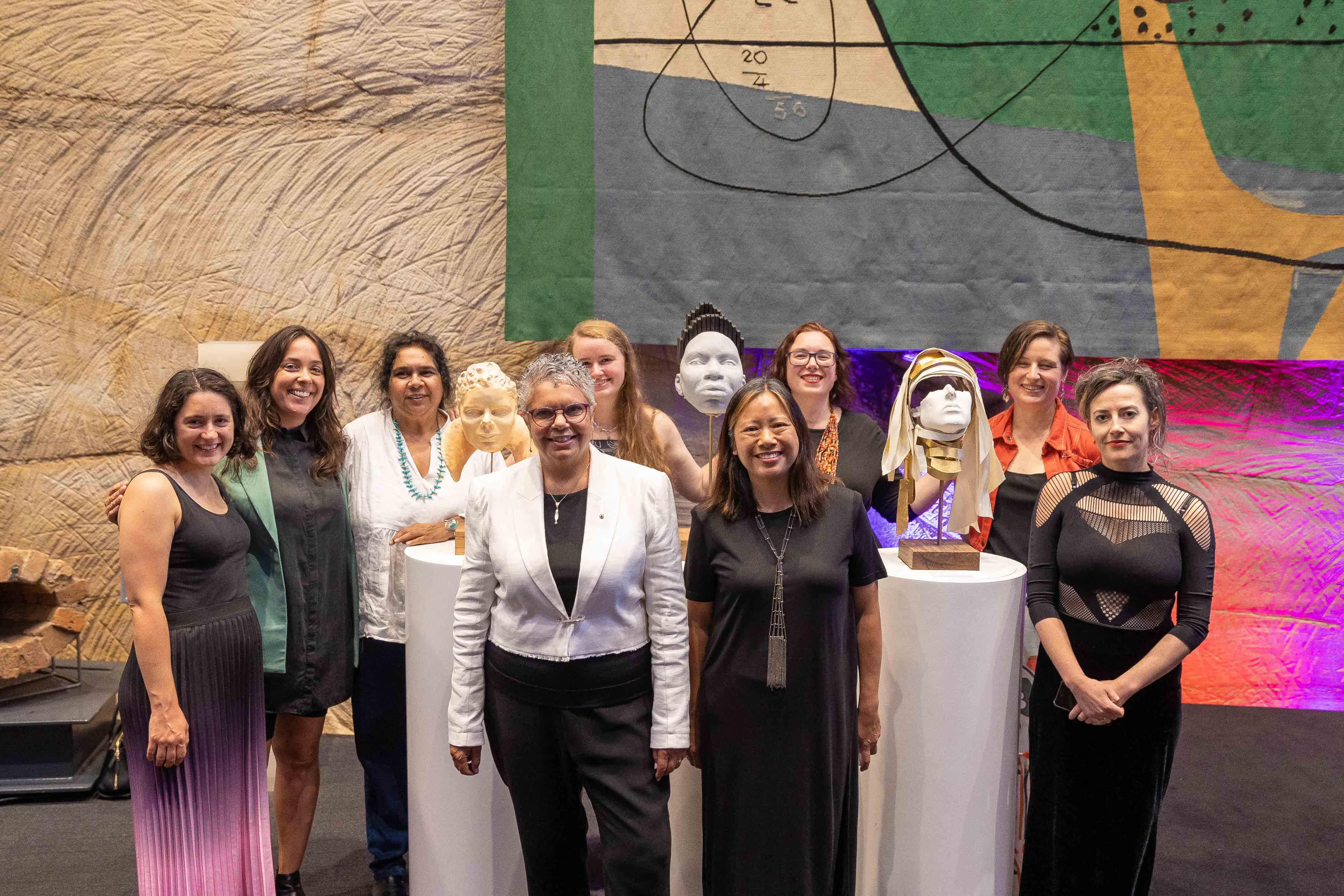How Liza Lim is breaking down barriers in music composition

Emeritus Professor Peter Sculthorpe AO OBE, one of Australia’s most revered composers, created a musical legacy that continues to inspire and shape the landscape of Australian composition. He was celebrated for his distinctive fusion of Australian landscapes, Indigenous music, and the sounds of Asia, carving a path that embraced the unique musical identity of this nation.
His long tenure at the University of Sydney saw him mentor some of Australia’s leading composers, such as Ross Edwards (DMus ’90) and Anne Boyd (BA ’68). He believed in the power of music to evoke the spirit of place, reflecting his deep engagement with Australian identity and its cultural environment.
His bequest to the Sydney Conservatorium of Music (the Con), which established the Sculthorpe Chair of Australian Music, plays a vital role in supporting new generations of composers.
During her five-year tenure as the inaugural holder of this Chair, Professor Liza Lim AM is extending Sculthorpe’s vision through her transcultural and ecological approaches to composition, contributing to both Australian music and the global stage. She is also championing women in composition and expanding pathways for their success.
Pushing the boundaries
Building on Sculthorpe's rich legacy, Professor Liza Lim AM, as the Sculthorpe Chair of Australian Music, has continued to push the boundaries of contemporary composition.
A visionary composer, educator, and researcher, Professor Lim’s work delves into cultural collaboration, ecological thinking, and the intersections between human and non-human entities. Themes of beauty, rage, noise, ecological connection, and female spiritual lineages are central to her recent works. Lim describes her approach as one shaped by her concern for the environment and the intricate relationships between species, technologies, and the living world.
“The arts are a place which allows one to interweave and find connections between different parts of the self, perhaps things that one isn't even necessarily consciously aware of,” she says.
Just as Sculthorpe sought to connect Australian music to its landscapes and cultural roots, Professor Lim pushes these boundaries further by asking how we might perceive music as an extension of the natural world. Her work seeks to expand the ways we understand sentiency - not only as something that applies to animals or plants but to systems, notations, and the act of music-making itself. “Our existence and our survival and our sustainability are all connected,” she explains. “The arts and music allow us to understand all those things and help us perceive how we interact and communicate.”
Professor Lim’s academic contributions extend beyond her compositions. Under her leadership, the Sydney Conservatorium of Music’s Composing Women program has flourished, fostering gender equity in music composition and offering a platform for women composers to innovate and collaborate.
“Gender equity, or equity in general, and the environment and ecological thinking are important themes. They're very much connected because underpinning that is the idea that justice for any one group is bound up with justice for everyone and everything,” Professor Lim says.

Gender equity, or equity in general, and the environment and ecological thinking are important themes. They're very much connected because underpinning that is the idea that justice for any one group is bound up with justice for everyone and everything.
Professor Liza Lim AM
Sculthorpe Chair of Australian Music
“Gender equity, or equity in general, and the environment and ecological thinking are important themes. They're very much connected because underpinning that is the idea that justice for any one group is bound up with justice for everyone and everything.”Professor Liza Lim AM
Sculthorpe Chair of Australian Music
The Composing Women program
The Sydney Conservatorium's Composing Women program, a two-year initiative for female professional musicians, was established in 2016 by Professors Matthew Hindson and Anna Reid to address the significant gender disparities in Australian contemporary classical composition. That same year, reports from the University of Sydney, APRA and AMCOS revealed a clear glass ceiling for women in the industry—women accounted for just 15 percent of programming, with an even lower representation of 3 percent in the film music sector.
“In 2016, there were reports that demonstrated a hard ceiling for women in the field,” Professor Lim says. “Since then, we’ve been working on opening pathways for participation and success through education, research and opportunities to make creative work in collaboration with key industry partners.
As a result, Professor Lim says they’re in a “much better place.”
“The conversation has shifted, and careers are less stuck. We see at the Con that there's also been systemic change. There are more women in permanent positions who are teaching that have graduated through these programs. So that's the pathway, there's the pipeline.”

The enduring impact of Sculthorpe's legacy
When it comes to Sculthorpe’s legacy, Professor Lim says: “What I hold to is that overwhelming love of Country and culture in Australia, understood through both Indigenous and non-Indigenous lenses that was central to Peter’s work.”
Professor Lim mentions his love for Australian music and how, in her role, she is taking the concept of what Australian music is, further.
“What is Australian music? It's not just one kind of national picture. It has to be more diverse,” she says. “In my five years, I have focused on trying to expand on who the participants are. Obviously, there's lots more work to do there. It's not just what a scene looks like but what can this diversity do; what stories, experiences, and paradigms of thought and experience can be brought forward.”
Peter Sculthorpe once said that he felt a profound responsibility to reflect the sounds of Australia in his compositions. Today, Professor Liza Lim honours that responsibility, blending it with her own commitment to global ecological thinking, intercultural dialogue and advocacy for gender equity. Through her role, she ensures that Sculthorpe’s legacy remains a dynamic force in contemporary music, fostering not just a continuation but an evolution of his visionary ideals.




